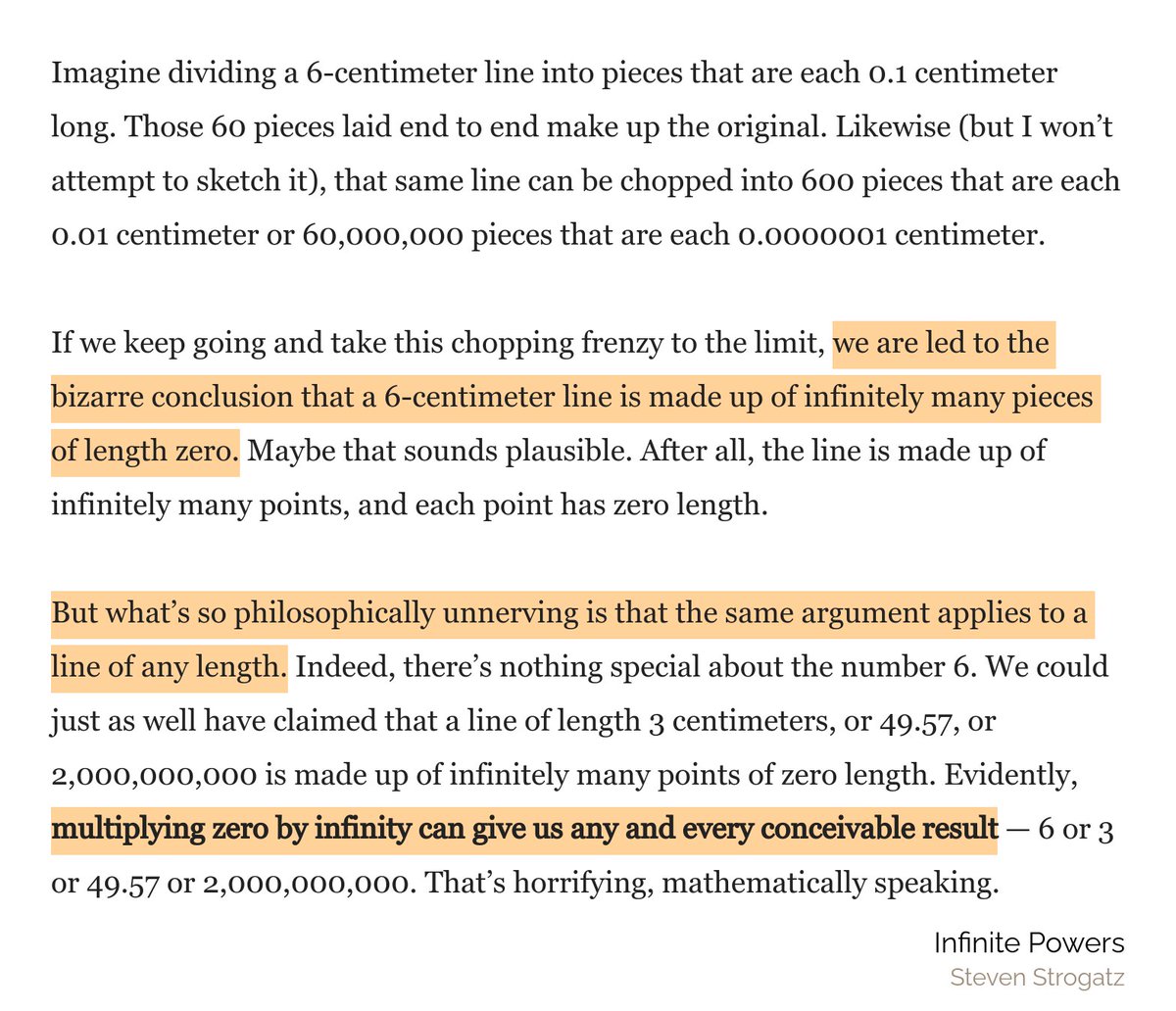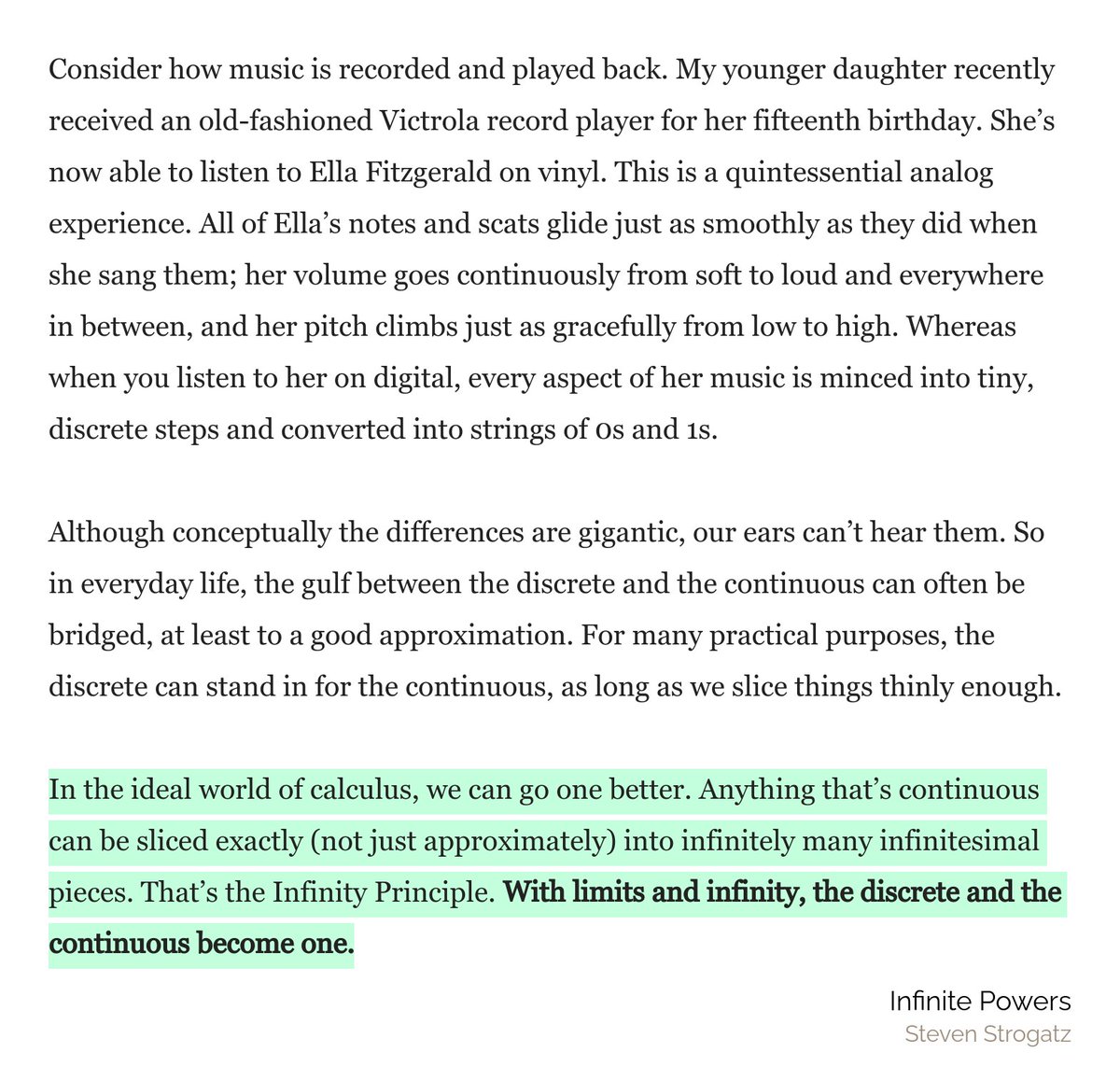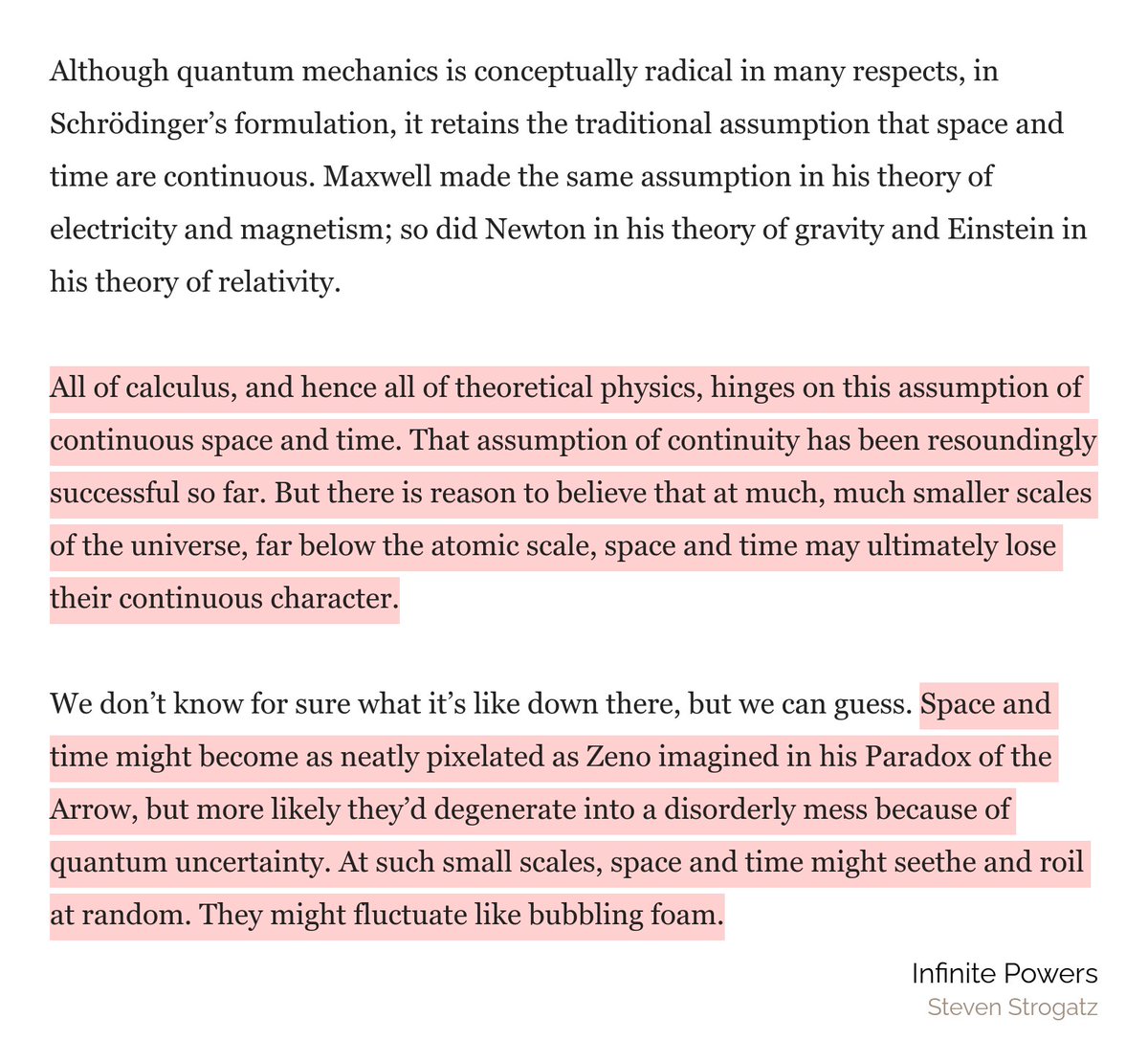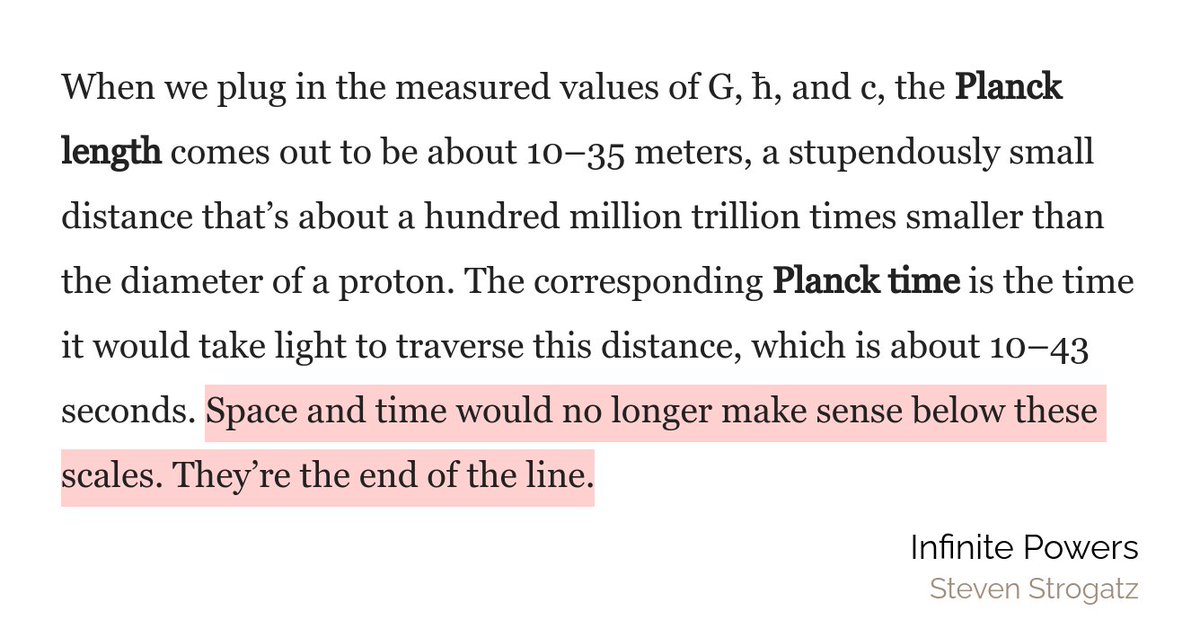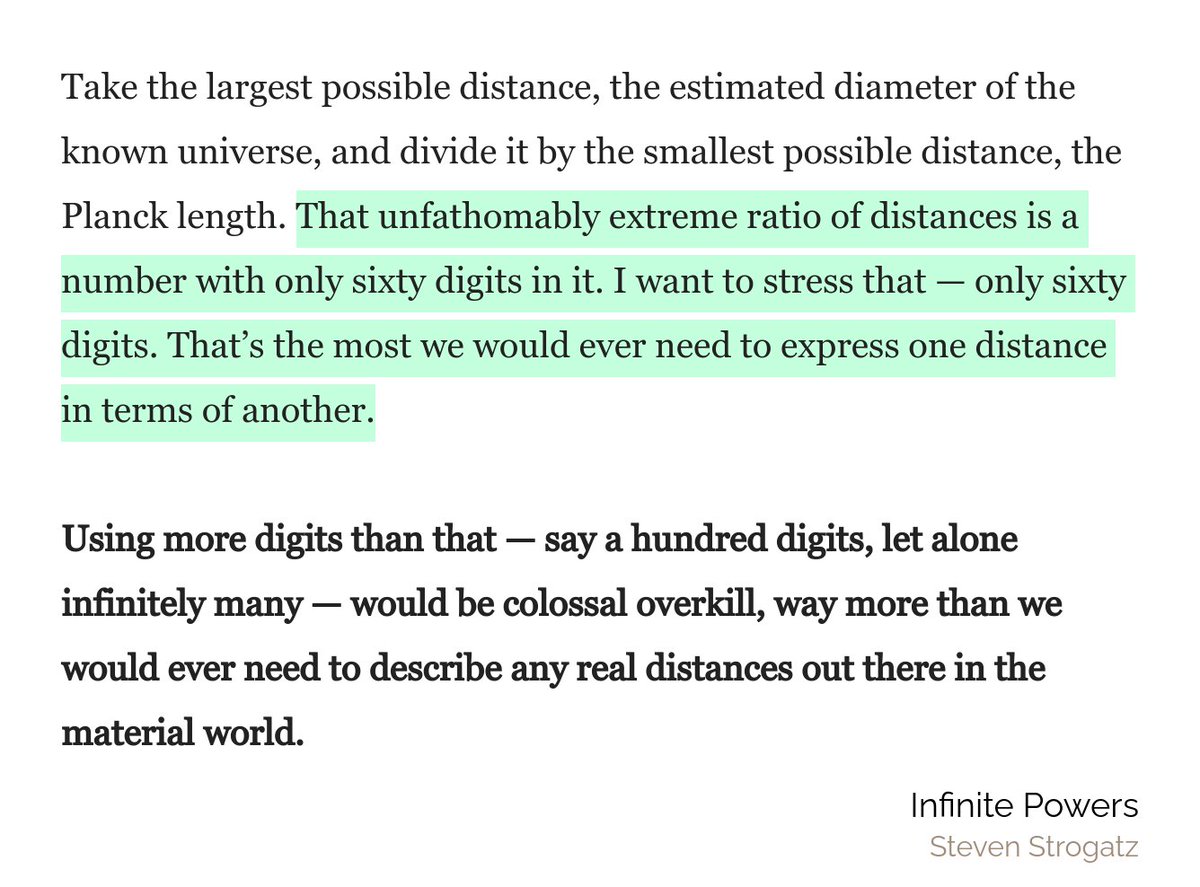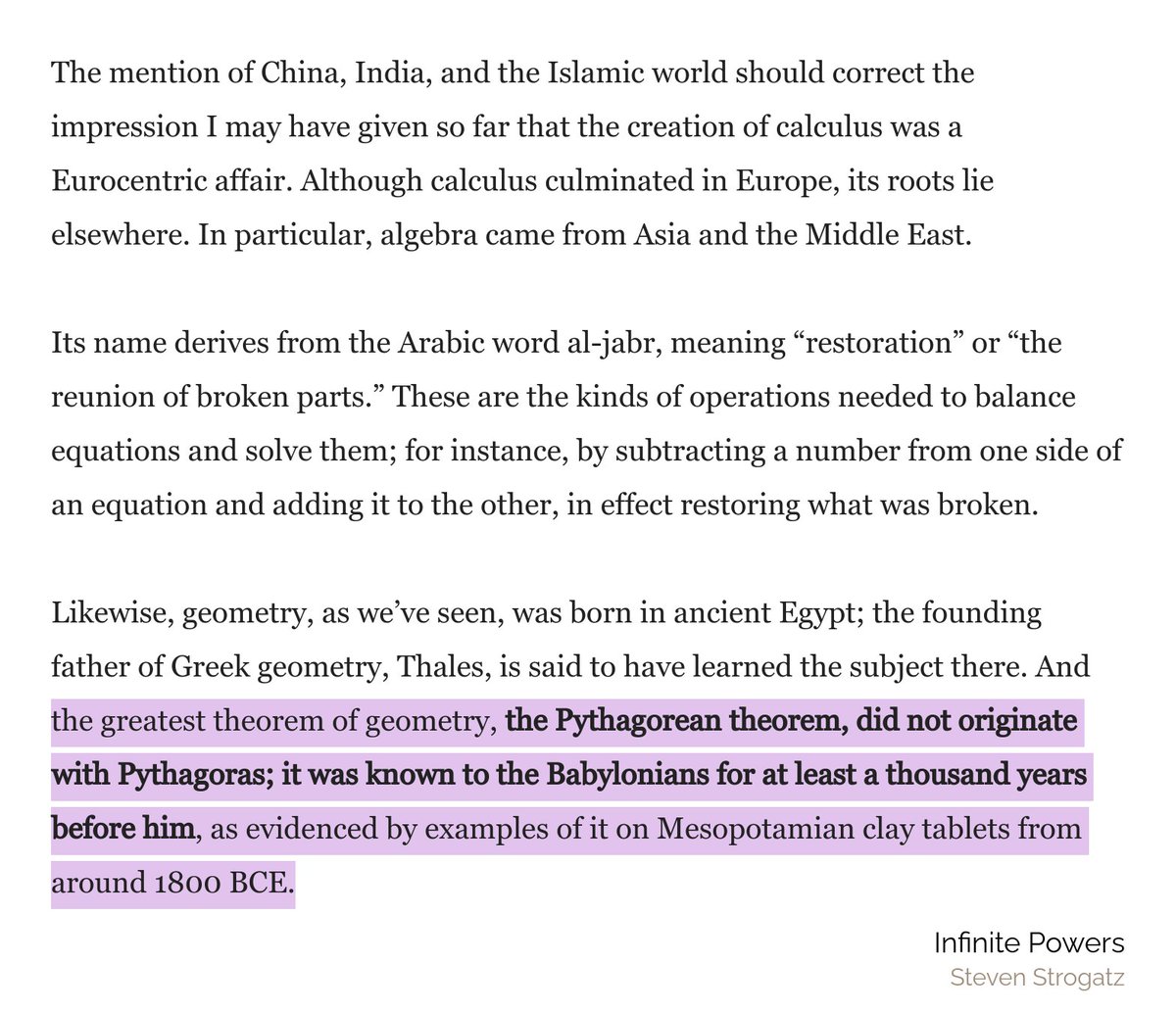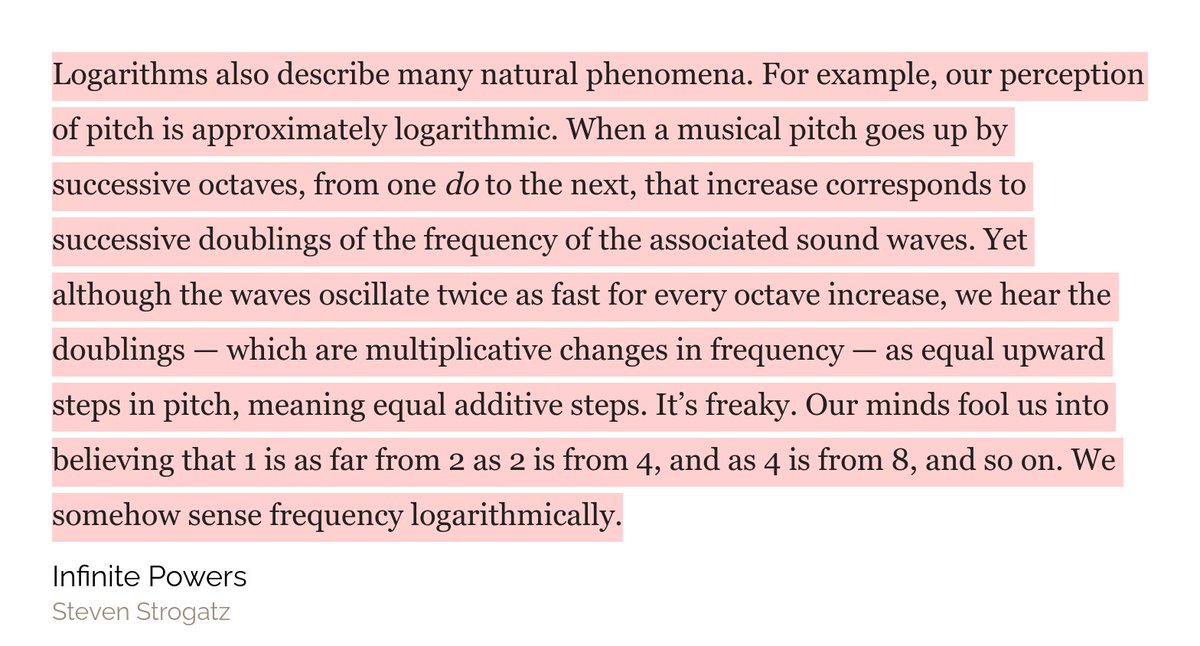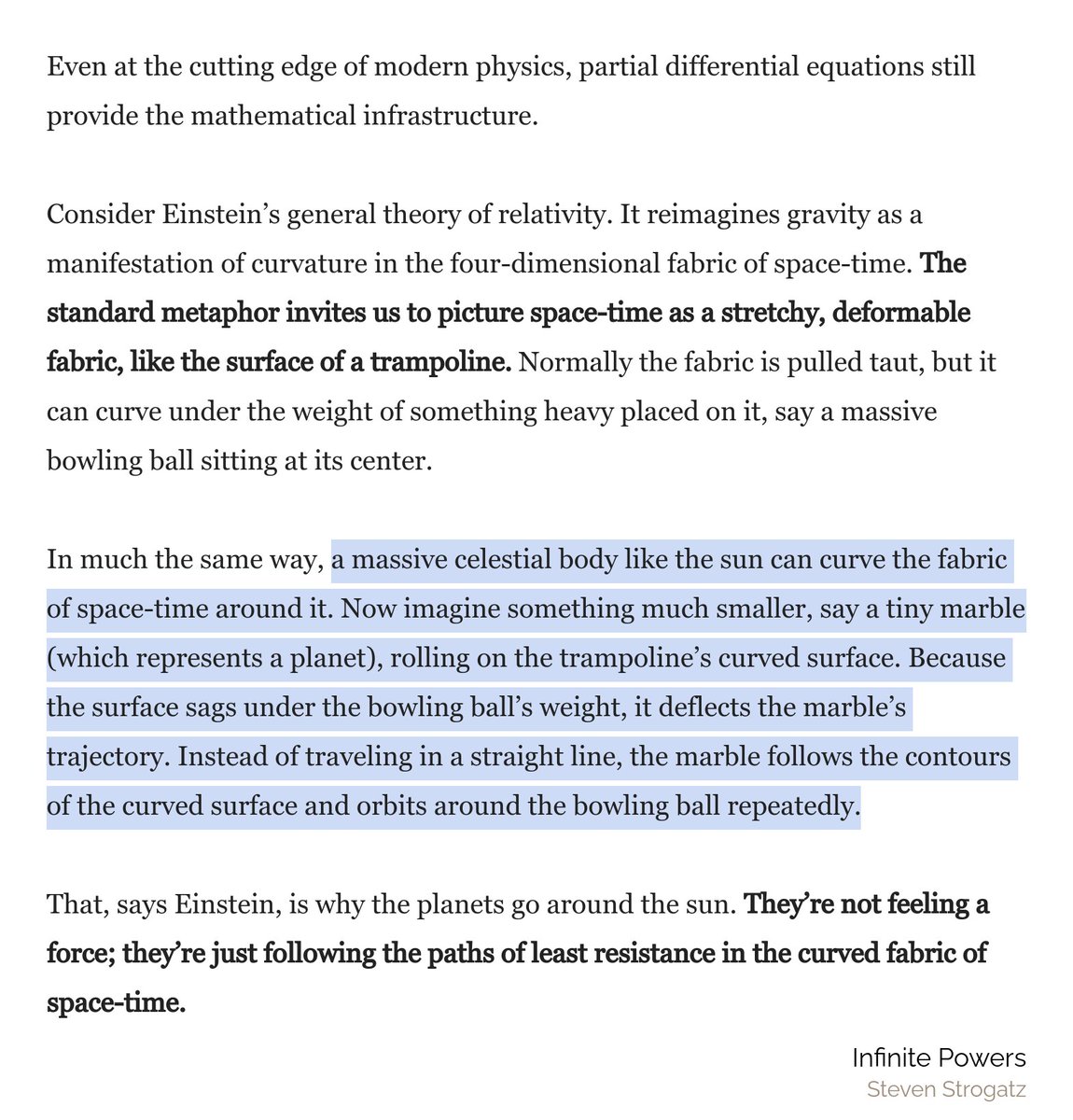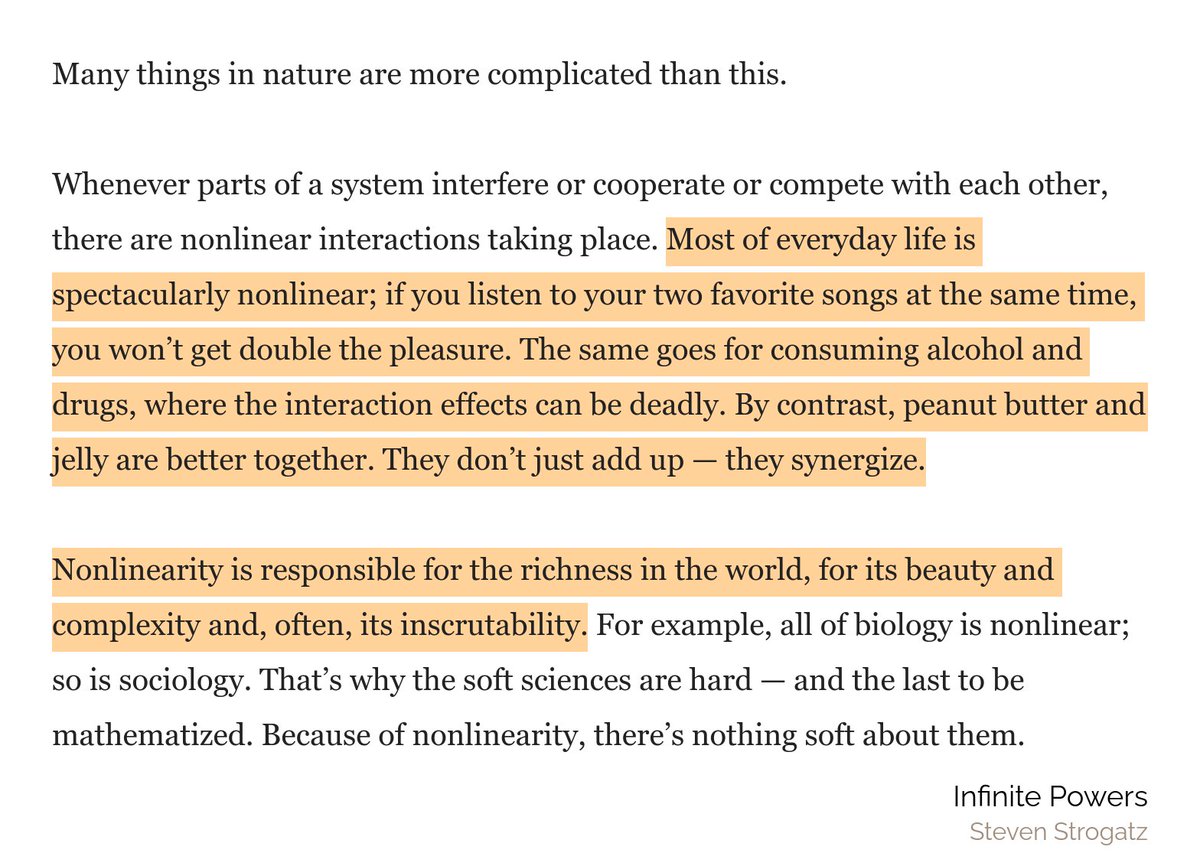Recently read Steven Strogatz's "Infinite Powers", an amazing history of calculus - a subject which, until this book, I had precisely zero experience with. Now I'm *really* curious about it.
It was so clearly-written that I literally dreamed about these ideas after reading it.
It was so clearly-written that I literally dreamed about these ideas after reading it.
I feel that the hallmark of a clear explanation is making something feel screamingly obvious. I know that you can't divide by zero but I never really stopped to think more about *why*. This explanation was beautifully elegant in its simplicity, and marvellously satisfying.
Again, I was so happy about the clarity of this explanation that I had actual dreams in which I was pondering these ideas. If there was a way to hook someone on the idea of calculus, this book did it.
Pretty sure there was some discussion happening a while back (possibly prompted by @TKPullinger ?) on the theme: "Is the universe discrete or continuous?"
My answer now is "Yes."
My answer now is "Yes."
Expanding a little on that (and being less facetious about it), I'm now curious about how reality behaves on the Planck level. I'm kind of fascinated about the notion that the universe might *technically* be discrete (to some degree) at that level. What a wild notion.
Also, I'm absolutely humbled by our utter inability to grasp these scales. I've played with every "scale of the universe" site that I've found, and it's still impossible to grasp at any meaningful level.
Real life is just so much weirder than anything we could have dreamt up.
Real life is just so much weirder than anything we could have dreamt up.
When I read paragraphs like this, it completely shatters my notions of what is "real" or not. 60 digits to express the widest extremes of the universe?!
Then you read about things like Graham's Number and your head starts to hurt.
https://waitbutwhy.com/2014/11/1000000-grahams-number.html
Then you read about things like Graham's Number and your head starts to hurt.
https://waitbutwhy.com/2014/11/1000000-grahams-number.html
Again, the sheer weirdness! Pi exists, but... it sort of doesn't, either? We now know 22 trillion digits of it, and yet even the same number raised to the power of 22 trillion again is still technically almost nothing compared to the infinity of numbers that constitute pi.

Also, the more I read of history, the more I keep getting surprised by how much the ancient civilisations managed to successfully understand.
In the same vein, it's commonly thought that Earth as a sphere is a recent notion. Nope. Greeks figured it out in the 5th century BC.
In the same vein, it's commonly thought that Earth as a sphere is a recent notion. Nope. Greeks figured it out in the 5th century BC.
There's often an artificial demarcation drawn between "academia" and "the real world". However, one historical pattern that fascinates me is that so many "abstract" concepts were invented as a practical way of dealing with things like commerce, tax, & bookkeeping - even algebra!
Reminder that 15 years of musical training gave me absolutely zero insight into how the brain processes the concept of pitch.
Pairs well with Adam Neely's video on musical fractals:
Pairs well with Adam Neely's video on musical fractals:
I find myself absolutely humbled when ferociously complex concepts can actually be expressed in a simple, elegant way. It feels almost unreal that this can actually work in the real universe and can give actual, concrete, precise answers, often verifiable to many decimal points.
Look at that last sentence! Calculus predicted not only that there should *be* another planet, but also gave its exact location.
This is why I'm so unimpressed with vague, hand-wavy prophecies that could be interpreted in thousands of ways. The precision here is stunning.
This is why I'm so unimpressed with vague, hand-wavy prophecies that could be interpreted in thousands of ways. The precision here is stunning.
I have *never* bought into the idea that knowing more about something takes away its beauty.
I had the same experience with music. Theory helped to deepen and enrich both my understanding and experience of music; I *felt* it more deeply than when I listened at the surface level.
I had the same experience with music. Theory helped to deepen and enrich both my understanding and experience of music; I *felt* it more deeply than when I listened at the surface level.
Again - you have to admire somebody who can give an explanation of gravity in terms of the curvature of the four-dimensional fabric of space-time and make it sound almost childishly simple.
Feeling the need to re-iterate that I am vastly unqualified to talk about any of these, but I love reading predictions about the future from intelligent people that I respect. These are some really exciting use cases!
Turns out I already had a fascination with the concept of nonlinearity without knowing the term for it. Now I've got the terminology, I'll be doing some more reading!
Thus concludes my accidental thread about a subject in which I have zero experience! I heartily recommend the book, though - it blew my mind so many times over. THIS is why I read: to expose myself to wonderful worlds of new ideas, to stay humbled, and to induce wonder and awe.

 Read on Twitter
Read on Twitter

